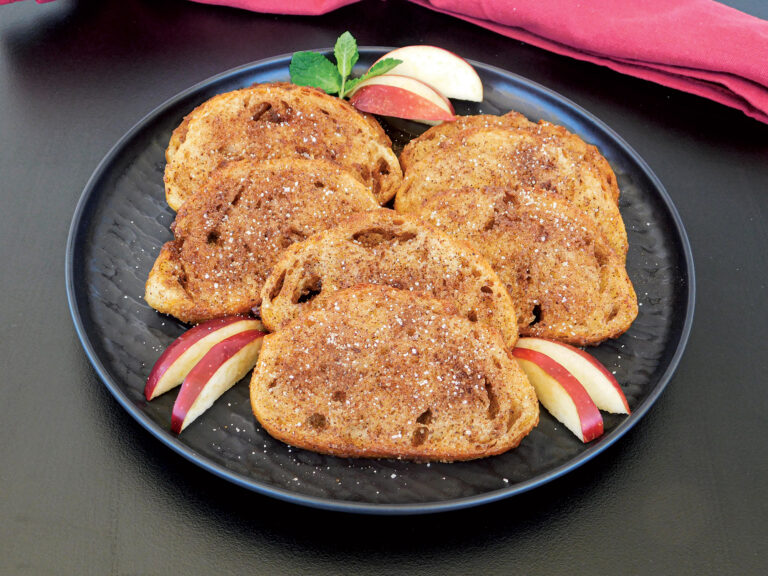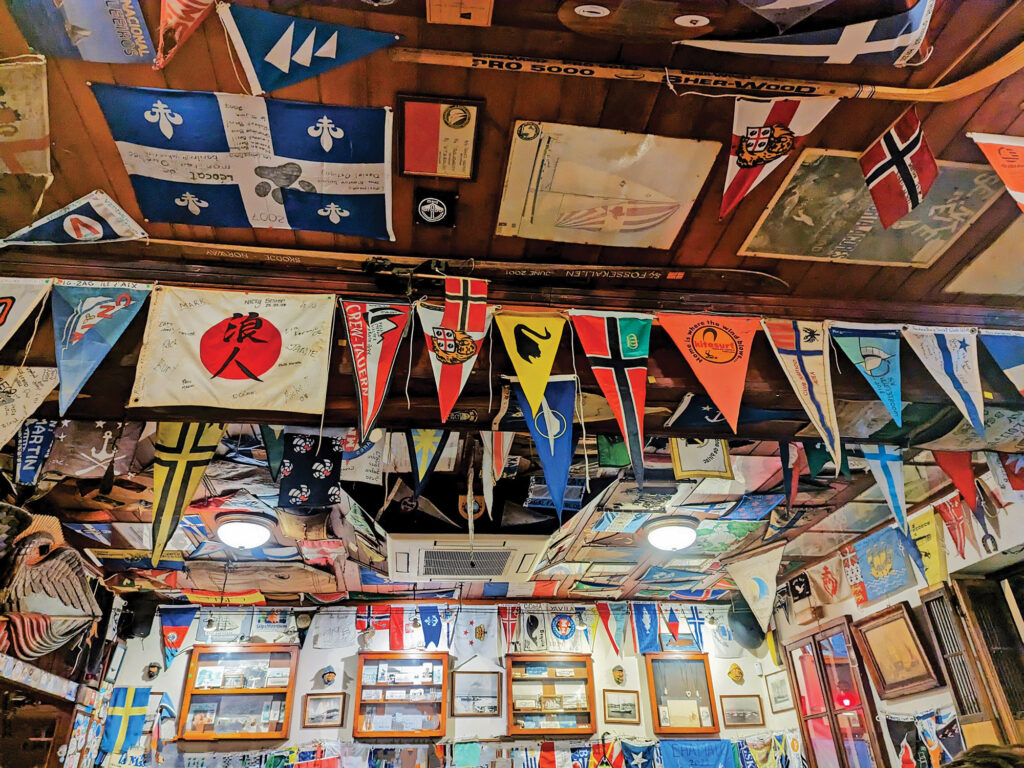
Shielding my face from the misty rain, I was steps away from turning around when the sound of jeering cut through the creaking of moored boats. Amid the wind gusts, and under the glow of sunset and scattered streetlights, I could see that I was alone in the harbor, but I distinctly heard cackling, along with, “Weigh heigh and up she rises, weigh heigh and up she rises…”
This was my first encounter with Peter Cafe Sport, a refuge for trans-Atlantic adventurers on Faial Island in the Azores.
Unlike other islands in the Azores, Faial is sheltered, with soft, gray moonscapes and 10 sleeping volcanoes. Its harbor, at Horta, is guarded from storms by two peaks to the south, another to the east, and yet another to the north. It’s here that Peter Cafe Sport opened in 1918. Bedraggled seafarers with wild beards, sun-blistered skin and an unfamiliar tongue fueled fear in the isolated islanders, but cafe founder Henrique Azevedo and his son José welcomed them as brave pioneers of the ocean. José, in particular, became known in the sailing community as a friend who could be relied upon for a good chat, a shower, supplies and a boozy welcome party.
This devotion to passing mariners runs in the blood of the family, still to this day. I returned to the cafe in daylight and noticed drinkers eyeing their docked boats from a raised deck. Above the entrance, a bowsprit reached out to sea. Below it was a ribbon-shaped sign etched with “Cafe Sport.”
The building resembles a boat that’s riding the waves, with bright-white upper floors floating on the blue lower level, embellished with a sperm whale carved from whalebone. Behind wood-shuttered windows and through the open door is a dimly lit watering hole with the familiar warmth of a local pub. A sculpture from the prow of a ship hangs over the wooden bar that has stood for more than a century. Weather-worn flags are strung across the ceilings and walls, left behind by sailors for good luck at sea.
José became known in the sailing community as a friend who could be relied upon for a good chat, a shower, supplies and a boozy welcome party.
At the back of the room, through the swinging door, Peter busts out with open arms and a soft smile. “I’m the third Peter, but my name’s actually João,” he says while shaking my hand. “My father and grandfather are also Peter.”
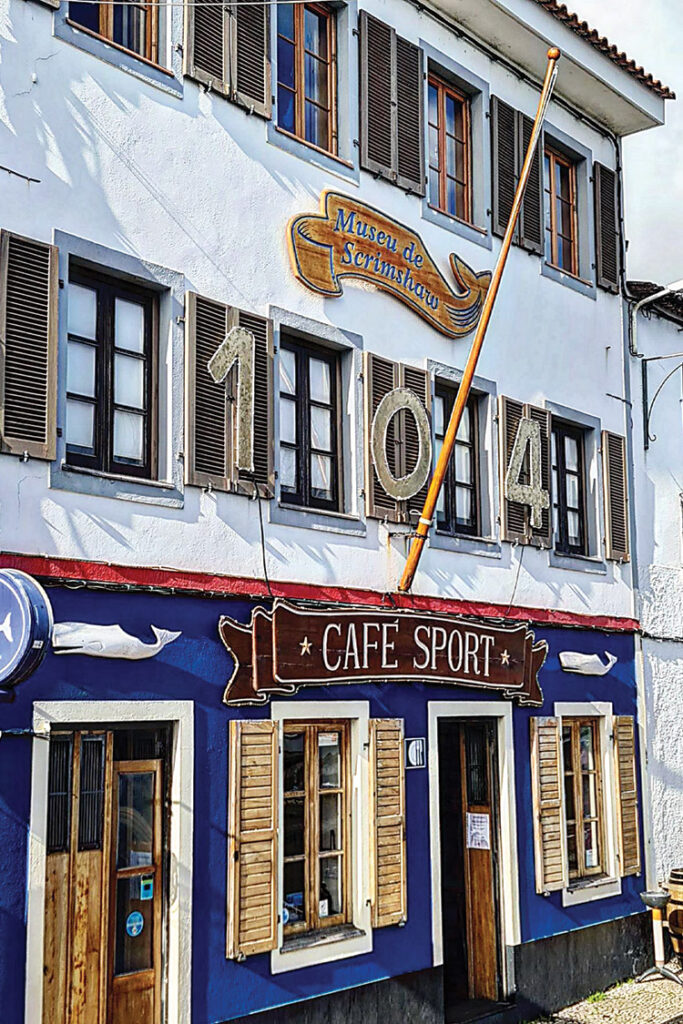
Henrique, the founder, was João’s great-grandfather. João learned the ropes at age 6. By 15, he worked full time. As he grew, so did his appreciation for the family business, which got its name from a captain aboard the British Royal Navy’s HMS Lusitania. Henrique had named his son José, but while José served aboard Lusitania during World War II, the captain took to calling him Peter, after his own son. Back home in Faial, the nickname stuck. Islanders and visitors would refer to the place as Peter’s, so the name Peter Cafe Sport was born.
Today, José “Peter’s” son, José Henrique, is the main man, but he’s passing duties on to his kids, João, Mariana and Pedro, and their cousin Duarte—who all consider themselves the third Peter in the family line. João’s mother offers a helping hand when she’s not working as a doctor at the hospital, often treating mariners.
“Two weeks ago, a Brazilian seaman was rushed into hospital with heart problems, and my mother was the one who cared for him,” João says. “When he was better, he spent time in the cafe. My mother, of course, made a visit to see how he was doing.”
Familiar faces return in the summers, along with unforgotten friends from 10 years past—every year, around 15,000 boats switch from sails to engines as the highest peak in Portugal comes into sight from the water. Some of the most celebrated mariners who have felt the heartfelt welcome of the Azevedo family: Jacques-Yves Cousteau, Larry Pardey, Joshua Slocum, Sir Francis Chichester, Annie Van de Wiele, Eric Tabarly and, just last week, Sir Robin Knox-Johnson.
“There was an English couple who visited at the beginning of a two-year trip around the world,” João says. “They said they’d stop by on their way back home. They did, 18 years later.”
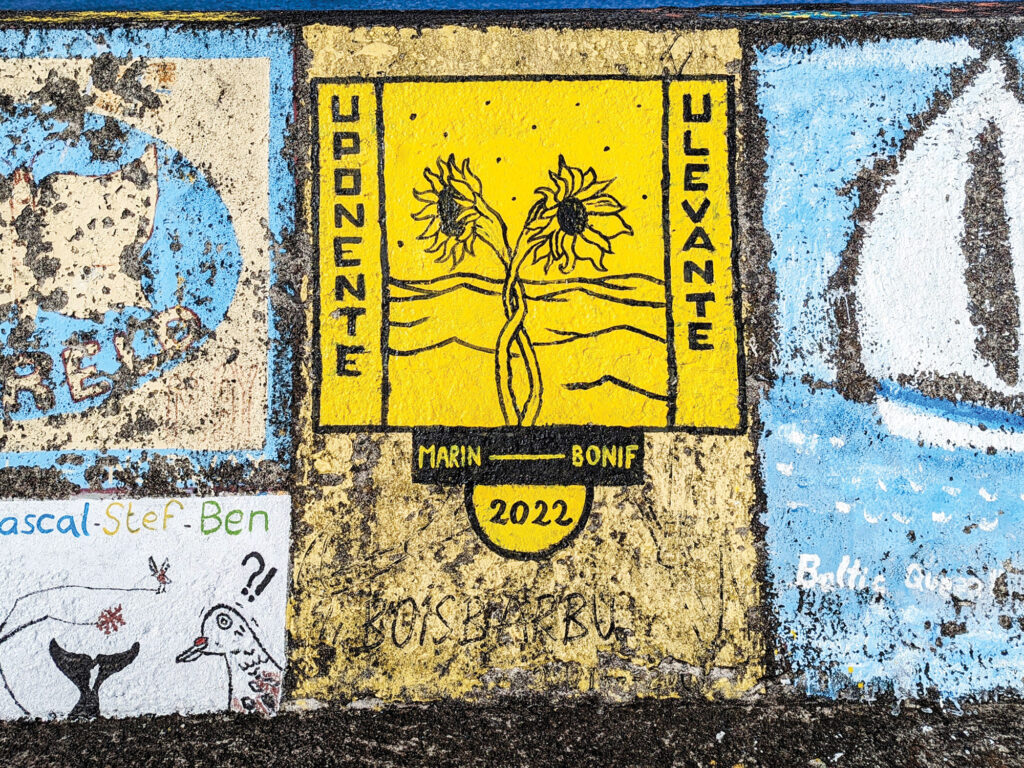
And another, he adds, from just a couple of years ago: “Sven Yrvind, a crazy 82-year-old man, arrived from northern Europe on a hand-built 4-meter-long boat. He was already planning to build another boat once he’d finished his trip to South Africa and back. He wasn’t even halfway through the first journey yet.”
They all got to hear what I heard: clattering cutlery and sizzling seafood on hot steel plates, with garlic butter spitting into the air. I watched satisfied guests nibble on light, creamy cheese starters, and then devour slow-cooked Azorean stews packed with locally grown vegetables. It’s customary here to wash down your meal with a gin and tonic or a signature cocktail made with the cafe’s own Gin do Mar (“gin of the sea”) and the Azorean passionfruit brandy Licor de Maracujá.
Back home in Faial, the nickname stuck. Islanders and visitors would refer to the place as Peter’s, so the name Peter Cafe Sport was born.
All the while, orders are put in for custom parts and boat repairs in the cafe’s workshop next door, and letters from loved ones are brought in to distribute.
“About three weeks ago, a young gentleman, around 16 years old, arrived on a school boat. They travel for six months while learning to sail,” João says. “It was the Pelican of London, and they’d been at sea for a few weeks and out of touch with family. When the boy was in the cafe one morning, I asked if he was waiting for mail. He said yes, so, teasingly, I asked if it was a love letter from a girlfriend. He said: ‘No, no, it’s from my grandfather. My parents called today because he’s just passed away. It will be the last words I ever receive from him.’
“I didn’t have the letter, so after tracking it and seeing that it was arriving here, I went to the post office and made some noise,” he continues. “I fought for that letter. Later that day, I returned to the cafe with a surprise.”
João handed the teenager the envelope. The boy cried, hugged him and said, “I would’ve just given up if it weren’t for you.”
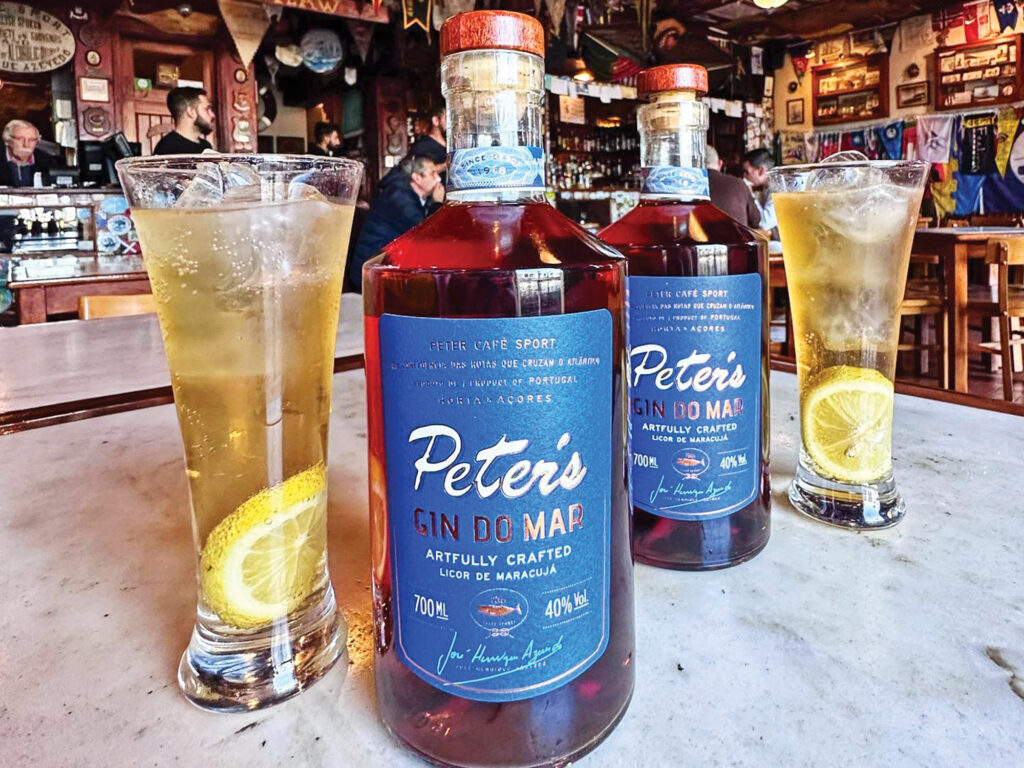
There’s plenty of tradition here too, in addition to the flags and G&T cocktails. “We have a closing-time CD that we play every day, with music that is special to us, like ‘Drunken Sailor’and songs by Jacques Brel because he was here six months before he died,” João says. “Some say his last live performance was here at the cafe. We also play ‘Imagine’by John Lennon because it’s a message of peace. It doesn’t matter about your race or country; here, you can always have a beer or gin and tonic—if you behave well.”
I left the cafe in the same way that thousands had done before me: by walking out onto the harbor, where the concrete breakwaters are covered with hand-painted murals that look like postage stamps from around the globe. Row upon row are intricate designs—some fading, others fresh—of elaborate deepwater dive suits, marine life and boats. Each one is dated and signed, with names of crewmembers and their country of origin.
It’s one last superstitious ritual for good weather during their journey onward.







